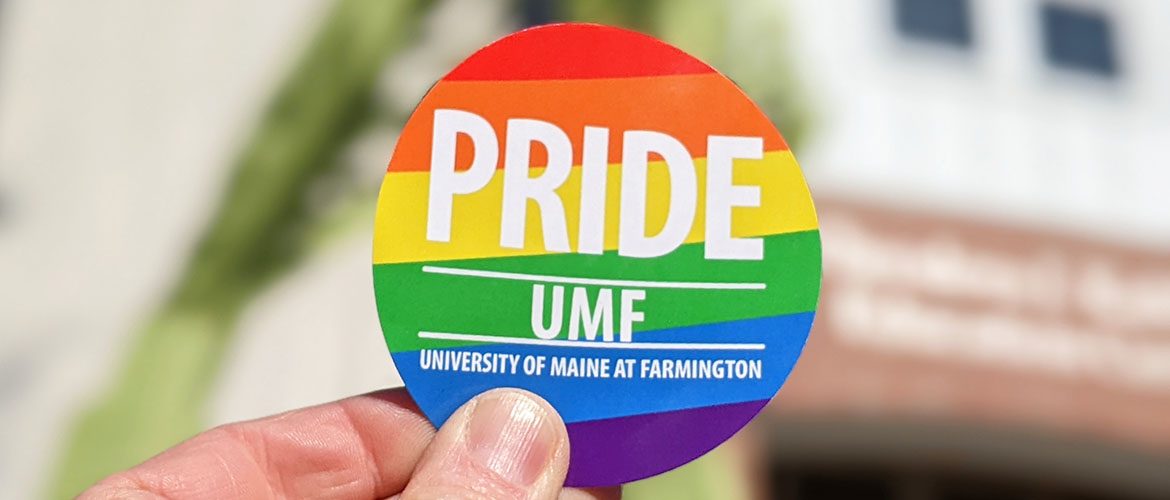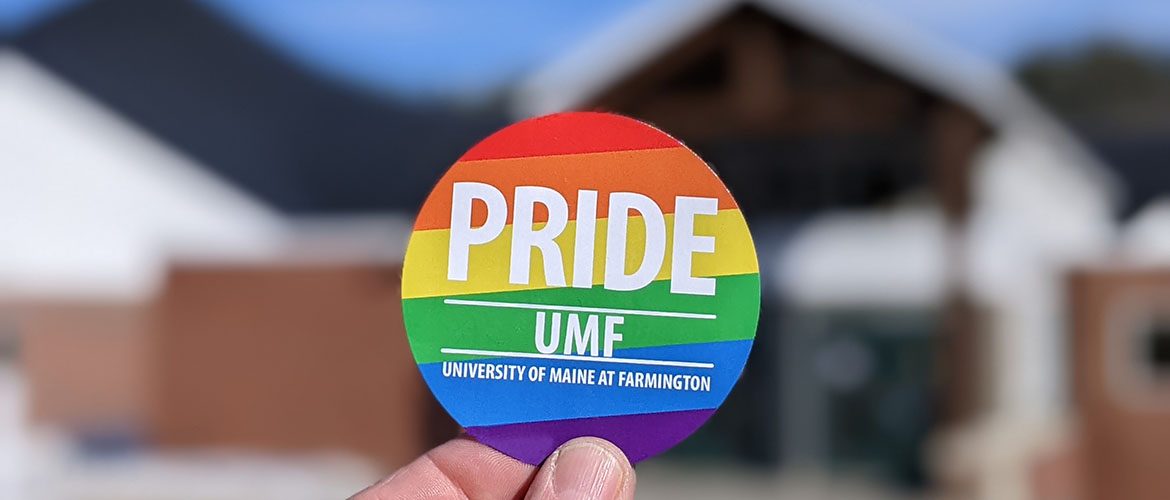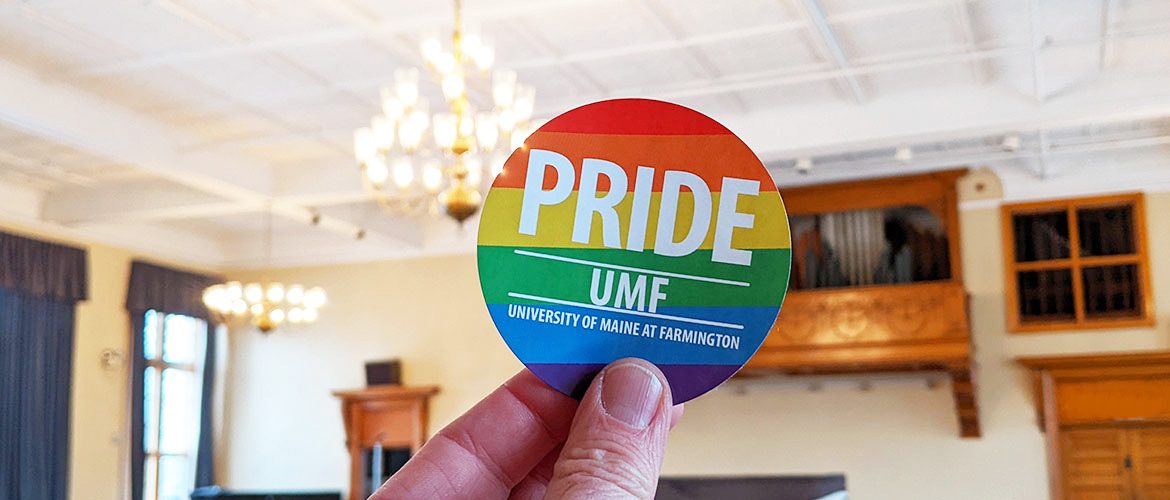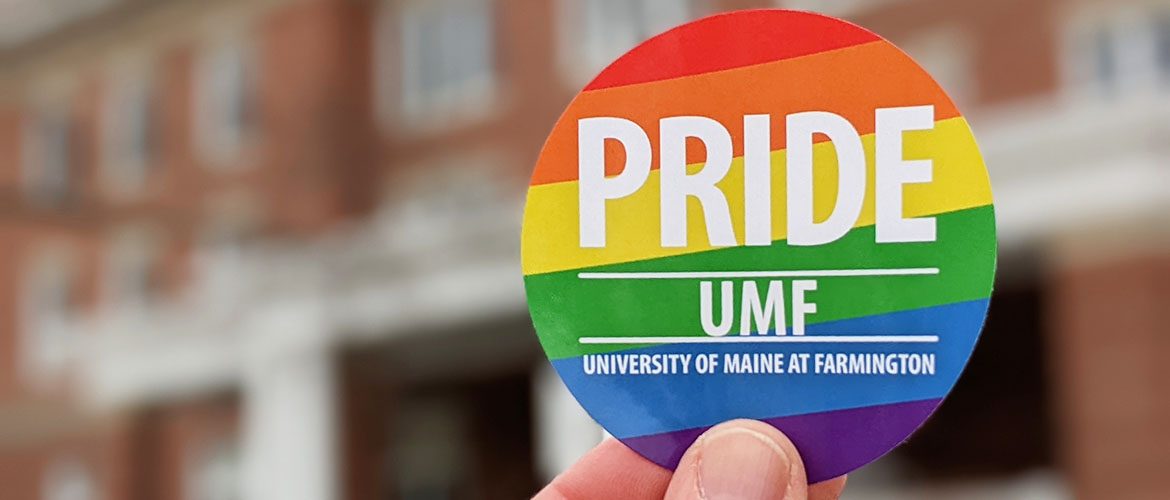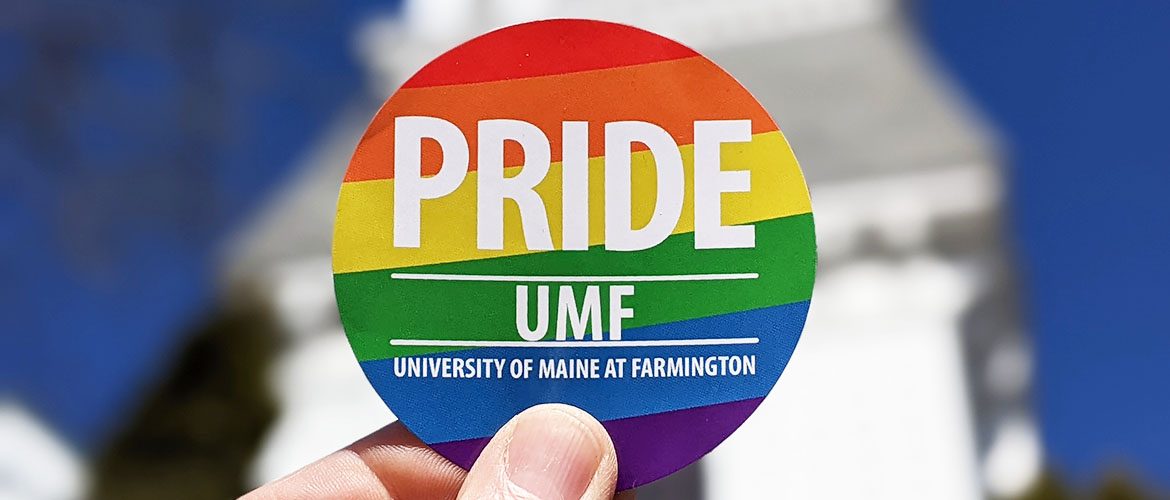We recognize that many members of our community use names other than their legal names. For some, a chosen or preferred name may be an important component of their identity. We get it.
Here, YOU have the option to indicate a chosen or preferred name, personal pronouns, and gender identity — even if you haven’t changed your legal name.
See the University of Maine System Name Usage Poilcy — including how to change your name (updated April 24, 2023).
To ensure we provide a safe and supportive space for residents of all gender identities and gender expressions, the University of Maine at Farmington offers optional Gender-Inclusive Housing in each of our residence halls.
The on-campus UMF Student Health Clinic is a confidential resource that provides all students (residential students and those living off campus) with accessible, convenient, and affordable healthcare.
The clinical staff includes two family nurse practitioners and one psychiatric nurse practitioner. The staff is committed to addressing the health needs of LGBTQ+ students and we provide a safe, confidential, and caring environment for LGBTQ+ students. Services include medical care, support, and community referral.
Examples of care provided:
- Laboratory hormone checks
- Care coordination, including referrals for gender-affirming care
- Chest / breast exams
- Pelvic exams and pap test / cancer screenings
- Testicular / genital exams
- Sexually transmitted infection screenings and treatment
- Sexual health counseling
- Contraceptive Management
As a confidential resource, the UMF Student Health Clinic uses a separate, HIPAA-compliant system to collect student demographics. Although legal names are used in medical records, our staff will always respect your chosen name and pronouns in their interactions with you.
UMF Student Counseling Services provides confidential, on-campus, and remote mental health and personal counseling and support that can assist all students in coping with issues that interfere with their personal and academic development and well-being.
Our counselors understand that LGBTQ+ students face specific societal and personal stressors.
Counselors are available to support LGBTQ+ students with a wide variety of concerns, including:
- Feelings of anxiety or depression\Concerns related to one’s own gender identity and / or sexuality
- Communicating about gender identity and sexuality with others
- Establishing safety and support networks
- Healing from trauma that has resulted from expressed or assumed gender identity, gender expression, or sexuality
- Navigating sexual health and healthy relationships
- Referrals for additional treatment or services, such as gender-affirming medical treatment
During your initial visit, counselors will work with you to identify goals and assess the level of support needed. While certain documents require students to use their legal name,
Counselors will always respect your chosen name and pronouns in their interactions with you.
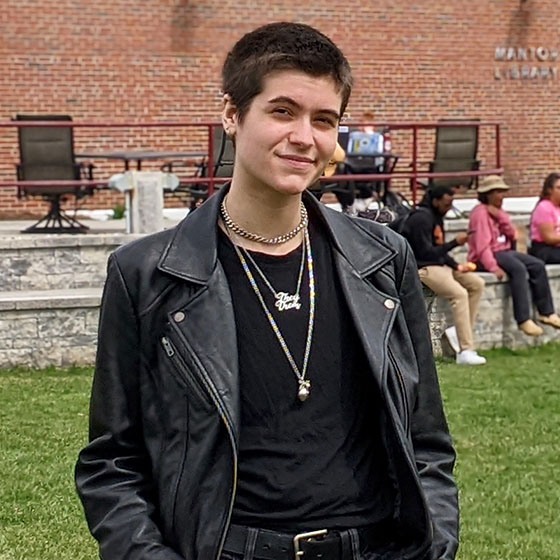
I live on campus and like that UMF has special on-campus housing for LGBTQ+ students if they want to choose it. It’s not a separate segregated thing though, it’s a part of a regular residence hall where there are additional support things for Queer students.
— Sam Hammar
Secondary Education – English major
UMF Admissions Ambassador
Kennebunk, Maine
The UMF OutList is a voluntary roster of University of Maine at Farmington faculty, staff, and administrators who hold LGBTQIA+ identities and are open and “out” to share them. The idea for publishing this voluntary list is to allow current and prospective students to see that people who hold such identities can reach a point where they’re comfortable about open about their true selves.
A student-run campus organization, the UMF Queer Student Union is a group of UMF students (gay, lesbian, bisexual, transgender, queer, questioning, straight, and supporting) that provides students a voice for issues relating to sexual orientation and sexuality. It does this by planning events and offering support for UMF and the surrounding communities.
The Queer Student Union organization also provides a safe space on campus to socialize and plan campus programs and events to raise awareness and appreciation of sexual diversity through social and educational means.
The group meets on campus each week.
When people hear the phrase Title IX (Title 9) they most often think of providing equal opportunities for girls and women in sports. While this is true, it’s a small portion of what Title IX encompasses.
Title IX of the Education Amendments of 1972 is a federal civil rights law that prohibits discrimination on the basis of sex in education programs and activities. Under Title IX, discrimination on the basis of sex includes sexual harassment or sexual violence, such as sexual assault, sexual coercion, rape; pregnancy discrimination, and more.
The University of Maine at Farmington prohibits discrimination on the basis of sex – and we have a number of policies in place that prohibit discrimination, procedures to address any instances, and measures to prevent recurrence.
Contact Us
Sarah Carew (she/her)
Area Director & Deputy Title IX Coordinator
University of Maine at Farmington
224 Main Street
Farmington, ME 04938
tel 207-778-7372
TYY (via Maine Relay Service) dial 711
sarah.carew@maine.edu
What does that term mean? What’s OK to say?
The terminology for LGBTQ+ changes frequently and can sometimes be a little confusing.
This LGBTQ+ Terminology page is intended to help you understand some of the LGBTQ+ terms a bit better.
Need help? Want someone to talk to? Looking for more info? We’ll connect you to the right person.
Contact Us
Lisa Ellrich
Assistant Vice President for Enrollment and Director of Admission
Office of Admissions
246 Main Street
Farmington, Maine 04938
tel 207-778-7054
TYY (via Maine Relay Service) dial 711
ellrich@maine.edu


